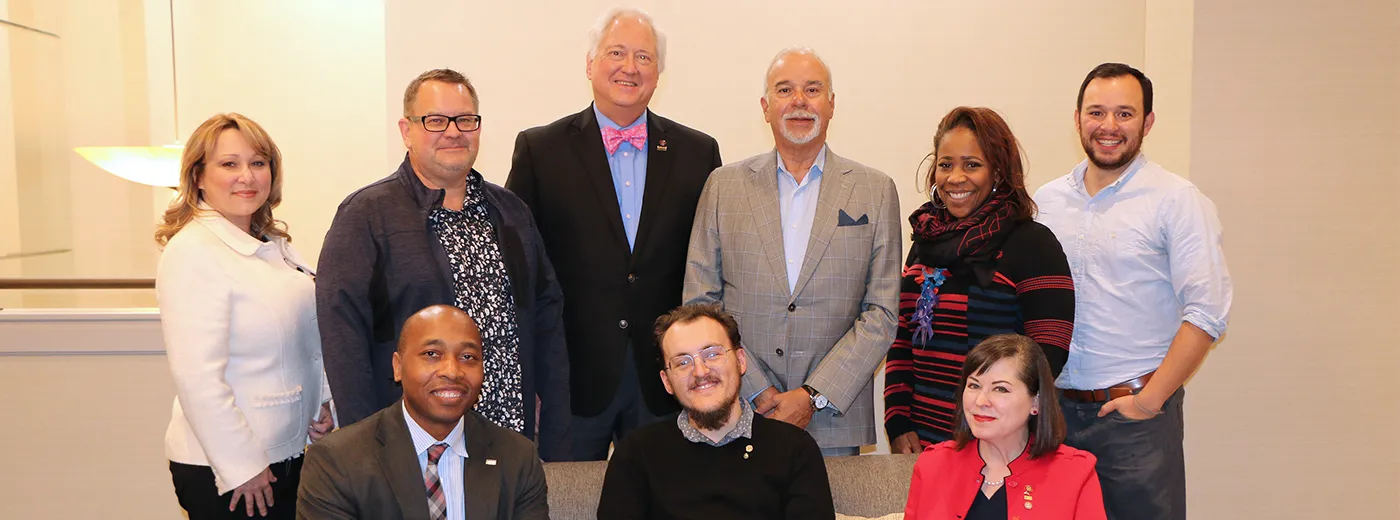Alliance Organizations
We collaborate closely with several architectural organizations, each of which is responsible for a different aspect of the profession’s health.
- The American Institute of Architects (AIA)
The AIA is a professional organization for architects. The AIA serves the architecture profession and is a resource for its members through advocacy, information, and community. - The American Institute of Architecture Students (AIAS)
The AIAS is an independent, student-run organization that promotes excellence in architecture education, training, and practice. The AIAS serves as the voice of students to the educational system and the profession of architecture. - The Association of Collegiate Schools of Architecture (ACSA)
The ACSA represents architectural education programs worldwide. The ACSA works to advance the quality of architectural education by encouraging dialogue among the diverse areas of discipline on issues that will affect the architectural profession in the future. - The National Architectural Accrediting Board (NAAB)
The NAAB establishes the criteria by which professional degree programs in architecture are evaluated and accredits programs that meet those standards. Most U.S. licensing boards require applicants for licensure to have graduated from a NAAB-accredited program. - The National Organization of Minority Architects (NOMA)
Rooted in a rich legacy of activism, NOMA seeks to empower its local chapters and membership to foster justice and equity in communities of color through outreach, community advocacy, professional development, and design excellence.
Other Related Organizations
In addition to the six Alliance organizations, we work with other organizations related to the practice of architecture and regulation, as well as our counterpart organizations in engineering, landscape architecture, and interior design. These include:
- The Alliance for Responsible Professional Licensing (ARPL)
- The American Indian Council of Architects and Engineers (AICAE)
- The Association of Licensed Architects (ALA)
- The Coalition of Community College Architecture Programs (CCCAP)
- The Council for Interior Design Qualifications (CIDQ)
- The Council of Landscape Architectural Registration Boards (CLARB)
- Federation of Associations of Regulatory Boards (FARB)
- International Code Council (ICC)
- The National Council of Examiners for Engineering and Surveying (NCEES)
- The Society of American Registered Architects (SARA)
- Society for Design Administration (SDA)
ICOR
The Interorganizational Council on Regulation (ICOR) is currently made up of CIDQ, CLARB, NCARB, and NCEES. As nonprofit regulatory associations, membership in these organizations is comprised of the U.S. (and in some cases Canadian) licensing boards for engineering and surveying, architecture, landscape architecture, and interior design. In some jurisdictions, a single licensing board may regulate most or all of these professions. ICOR’s collective mission is to support and advocate for sound regulation focused on protecting the public’s health, safety, and welfare and to facilitate licensure.
Licensure Advisory Forum
NCARB’s Licensure Advisory Forum (LAF) is made up representatives from various architecture and related organizations. The forum's goal is to provide feedback on the entire licensure process and identify ways the organizations can work together to address common issues. Through the LAF, stakeholders from across the profession can participate in comprehensive discussion regarding the path to licensure, including education, experience, and examination.
